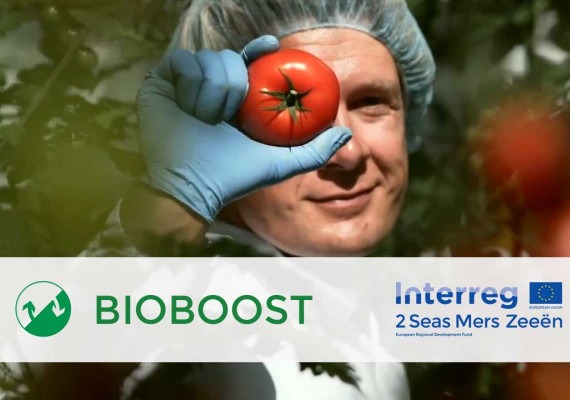BIOBOOST
Acceleration of transition to a bioeconomy in horticulture
Priority Axis
Resource Efficient EconomySpecific objective
Circular Economy
Lead partner
Municipality of WestlandContact
Start Date
01/11/2016End Date
31/12/2020Project budget
5 869 341 €ERDF amount
3 347 916 €ERDF rate
57%About
Common challenge
Europe needs to radically change its approach to production, consumption, processing, storage, recycling and disposal of resources in order to cope with an increasing global population, rapid depletion of resources, increasing environmental pressures and climate change. In this context, resource and material efficiency can be considered as a precondition for sustainable growth.
The project addressed this need by focusing on horticulture. In particular, by using plant resources in a more sustainable, efficient and integrated manner. Despite the great potential of horticulture, the development, testing and uptake of green innovations was slow due to lack of effective support strategies and mechanisms, little experience with cross cutting areas with other branches, sub-optimal cooperation of researchers and SMEs, and difficulties with financing development, testing and market introduction of green innovations.
The project wanted to tackle these shortcomings in practice. SMEs thereby played an important role because of the intended roll-out of these green technologies into real commercial life.
The focus of BIOBOOST was on major horticultural waste streams and by-products in 3 horticultural areas. Partners noticed there were very promising perspectives for producing green pesticides, bioplastics, green packing materials, cosmetic compounds, pharmaceutical basic ingredients, food, feed from these horticultural waste streams and by-products.
Overall objective
Main outputs
Cross border approach
Main Achievements
During its implementation, the project successfully delivered the seminar 'Saving waste in horticulture: Optimising resources', in Cambridge (UK), which generated strong interest amongst industry, research institutes and public authorities. Similar success was had with the seminar 'Agro-food waste streams: from cost to source of income', in Beitem (BE), where the project was presented, and entrepreneurs shared their successful stories.
Furthermore, a project website was created, where the results of all activities are available, including 90 articles and the publication of 10 newsletters, which contributed to increasing the awareness on the circular economy and the opportunities in the horticultural industry.
Moreover, various reports published on 'Stabilisation tests of horticultural waste streams' and 'Green pesticides', where the results of the tests carried out to determine the performance of biocontrol agents made of organic by-products are presented, ‘Lab scale & pilot scale experiments with mealworm and black soldier fly', which focused on insects as a promising way of converting horticultural residues into valuable protein, oil and derived products, 'Valorisation of crop co-products to produce colourants and new products for cosmetics', 'Pre-treatment methods and techniques', focused on food applications made from residual flows, and 'Harvesting and logistic chain', focused on the optimisation of collecting horticultural residuals.
Also, various regional collaborations were co-organised in the United Kingdom, the Netherlands and Belgium with more than 12,000 participants. This was coupled with the organisation of the ‘More profit, less waste’ campaign to raise awareness in the horticulture industry about green residue applications.
Furthermore, the project delivered the Bio-economy Learning Module Horticulture and a related educational boardgame, which is available online, and launched the digital BIOBOOST Platform to stimulate and connect bio-based initiatives in horticulture, which core consists of examples of new applications of horticultural residues, currently presenting 71 examples and continuously updated.
Additionally, a strategy to 'boost' utilisation of horticultural residues was developed and summarised in the strategy brochure 'From waste to source of income'. This was presented to 17 public authorities in the United Kingdom, in the Netherlands and in Belgium.
Finally, various successful pilots were implemented in preparation of full-scale production installations for insect breeding and production of chipboard from green residuals.
Testimonial
The future of greenhouse horticulture is important. The subject of sustainability, innovation and technological development will become increasingly important if we consider that the world population will grow to around 9 billion people by 2050. In fact, if we will want to feed all those people with decent food applying our current production methods, we will need the equivalent of at least three earths, but we only have one globe. Or at least I’m assuming that in 2050 there will still only be one earth available. Thus, if we together want to feed all those billions of people in a responsible way in 2050 we will have to start pursuing innovations together. This implies shaping our production methods to use much less water, to consume less energy while producing it from sustainable sources, and to look for other ways of securing food qualities. All those things are important. That’s why I believe that a European project like BIOBOOST is very important, so to inspire new ideas to shape a sustainable and innovative future, where technology will play an extremely important role

